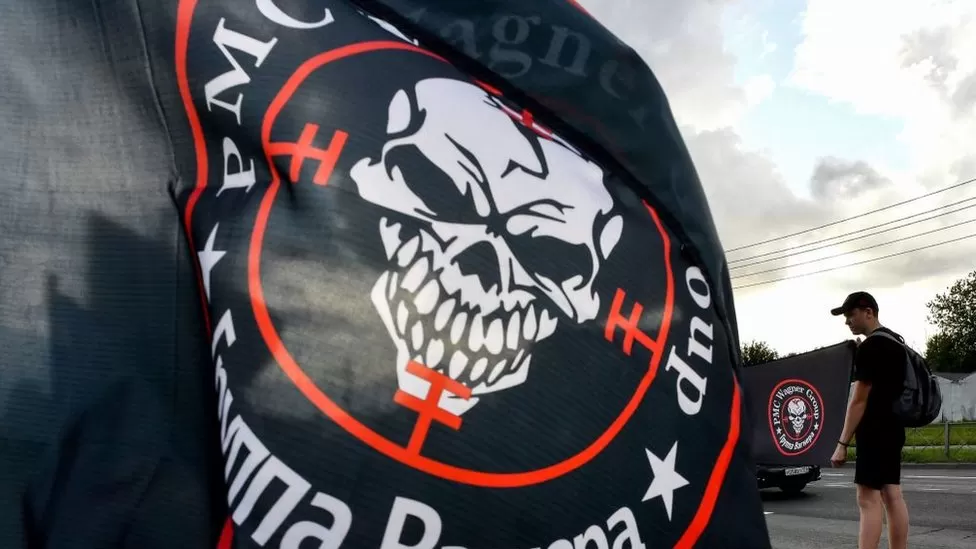The United Kingdom has formally designated Russia’s Wagner paramilitary group as a terrorist organization, a move that comes weeks after the death of its founder, Yevgeny Prigozhin. This decision, approved on Friday, renders membership in or support for Wagner illegal.
Individuals found guilty of assisting the paramilitary group could be subject to significant fines and penalties, including up to 14 years in prison. Home Secretary Suella Braverman, who proposed the order, described Wagner as a “threat to global security.”
“Wagner‘s continuing destabilising activities only continue to serve the Kremlin’s political goals,” Ms Braverman said.
“They are terrorists, plain and simple – and this proscription order makes that clear in UK law.”
The newly implemented order makes it a criminal offense to provide support to the Wagner paramilitary group, which encompasses activities such as arranging meetings to advance its objectives, expressing endorsement of its aims, and displaying the Wagner flag or logo.
Individuals convicted of supporting Wagner could face sentences of up to 14 years in prison or substantial fines.
Wagner will now be added to the list of 78 other banned organizations in the UK, which includes groups like Hamas and Boko Haram.
Founded around 2014 by Yevgeny Prigozhin, Wagner rapidly evolved into a significant instrument of Russian state power during President Vladimir Putin’s tenure. The group has played a role in supporting Putin’s allies in countries such as Syria, Libya, Mali, and the Central African Republic.
Since the invasion of Ukraine, Wagner fighters have been actively involved in the conflict in eastern Ukraine, contributing to some of Russia’s limited successes in cities like Soledar and Bakhmut.
However, Wagner’s future became uncertain earlier this year when Prigozhin led a failed mutiny against Russia’s military leadership. His mysterious death in a plane crash on August 23, along with other Wagner figures, further clouded the group’s fate, and he was subsequently buried in St Petersburg.
On Friday, Kremlin spokesperson Dmitry Peskov denied that an investigation into the causes of the crash had been too slow, claiming that it was “not a simple investigation, not a simple incident”.
“The investigation is ongoing, that is why giving some kind of commentary would be absolutely premature,” he told reporters.
Senior MPs in the UK have been calling on the government to proscribe Wagner for months.
Earlier this year parliament’s foreign affairs select committee produced a report condemning the government’s “remarkably complacent” approach to the group and criticised its “dismal lack of understanding of Wagner’s hold beyond Europe, in particular their grip on African states”.
Last month, experts told the BBC that rival private military companies were seeking to take over Wagner, in the absence of Prigozhin’s dominating leadership.
On Thursday, Alicia Kearns – chair of the UK parliament’s foreign affairs select committee – urged the government to take “a more strategic approach towards [private military companies] operating across all conflict zones”.
And the UK Labour Party’s shadow Foreign Secretary David Lammy accused the government of being too slow to act and of “failing to keep up with changing threats to our national security”.
It has been reported that Russia has created numerous new private military companies, each with different allegiances.
Anton Mardasov, a non-resident scholar associated with the Syria Program at the Middle East Institute, disclosed to the BBC last month that one of these groups, PMC Redut, is actively trying to compete with Wagner in Syria.

